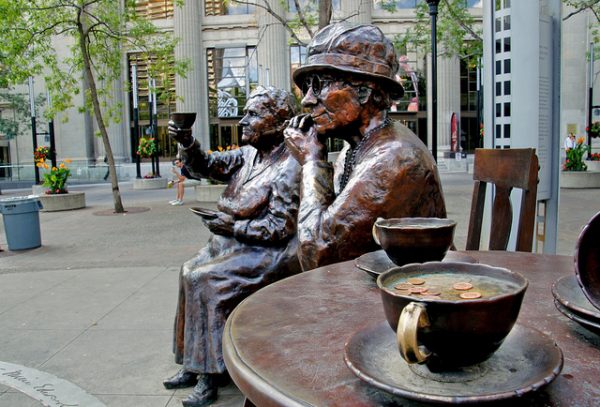
As we move through Women’s History Month, we remember the women and men around the world who have fought for gender, race, and other social equalities. Honoring the legacies of historical figures and the movements that led to their rise, however, raises larger questions about how these particular figures and movements are cemented into our memory, while others have been downplayed or altogether forgotten. Social science helps us understand these processes of collective remembering and forgetting.
Knowledge of past events is more than historical facts. Collective memory recognizes historical knowledge as a social process and acknowledges that socially-produced understandings of history also dictate how we understand the past. Groups reshape collective memory over time, with different institutions either reinforcing or reshaping knowledge. Within education, for example, textbooks can shape the way generations understand certain historical events. Legal institutions can also construct collective memory by categorizing actions as just or criminal. Additionally, commemorative events or memorials can prioritize certain understandings for those who participate or visit.
- Joachim Savelsberg and Ryan King. 2011. American Memories: Atrocities and the Law. New York: Russell Sage Foundation .
- Jeffrey Olick. 1999. “Genre Memories and Memory Genres: A Dialogical Analysis of May 8, 1945 Commemorations in the Federal Republic of Germany.” American Sociological Review 64: 381-402.
- Robin Wagner-Pacifici and Barry Schwartz. 1991. “The Vietnam Veterans’ Memorial: Commemorating a Difficult Past.” American Journal of Sociology 97: 376-420.
Creating knowledge about historical figures and events often lies in the ability of “reputational entrepreneurs,” like journalists, politicians, museum curators, and historians to construct or maintain a positive reputation of certain individuals and events. In a contentious political climate, this task proves even more difficult as groups compete for positive reputations. Entrepreneurial groups compete by denigrating opponents, downplaying failures, and constructing images of heroism. Failure on the part of reputational entrepreneurs may lead to the characterization of certain figures as revered and others despised. As new generations emerge, however, reputations of historical figures may be refocused to emphasize concerns in the contemporary political climate.
- Gary Alan Fine. 1996. “Reputational Entrepreneurs and the Memory of Incompetence: Melting Supporters, Partisan Warriors, and Images of President Harding.” American Journal of Sociology 101(5): 1159-1193.
- Barry Schwartz and Howard Schuman. 2005. “History, Commemoration, and Belief: Abraham Lincoln in American Memory, 1945-2001.” American Sociological Review 70(2): 183-203.
- Larry J. Griffin. 2004. “’Generations and Collective Memory’ Revisited: Race, Region, and Memory of Civil Rights.” American Sociological Review 69(4): 544-557.

Comments